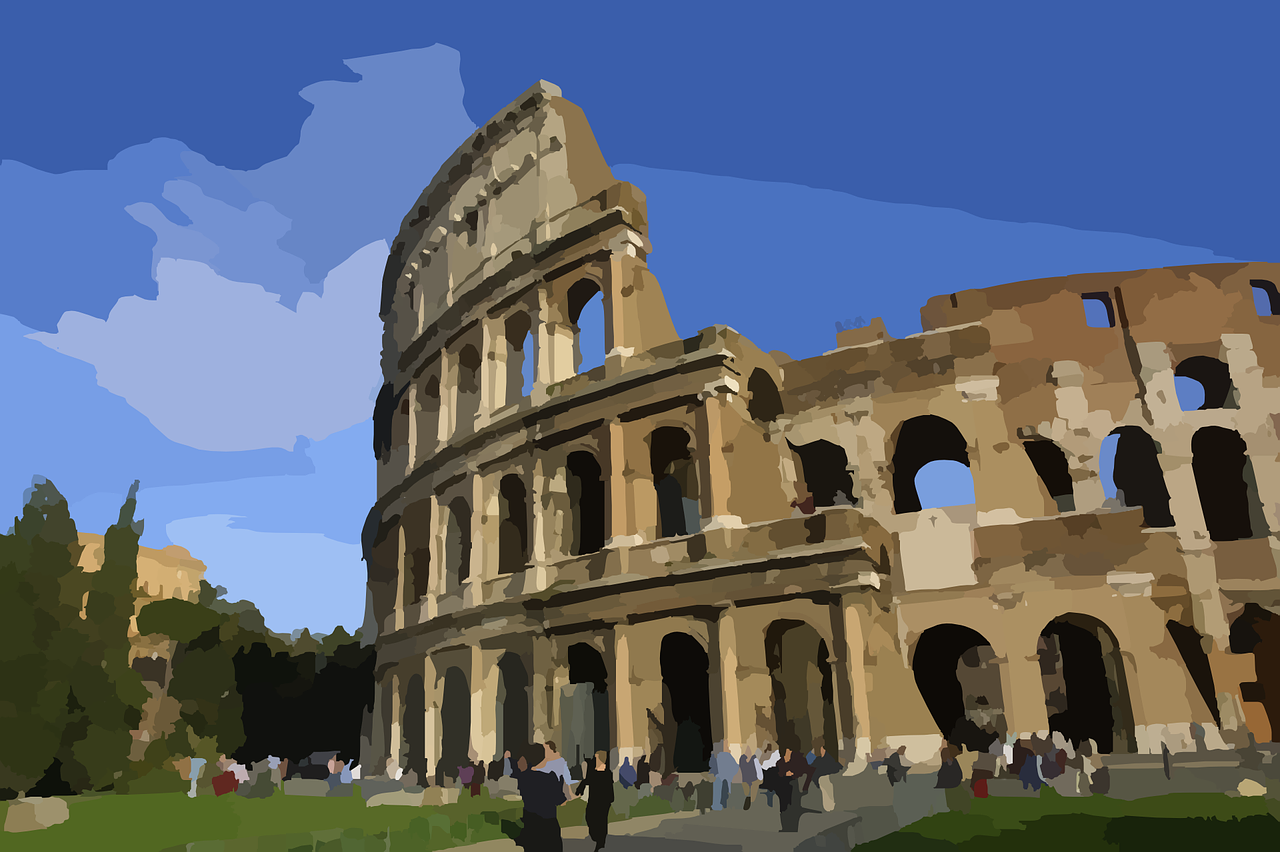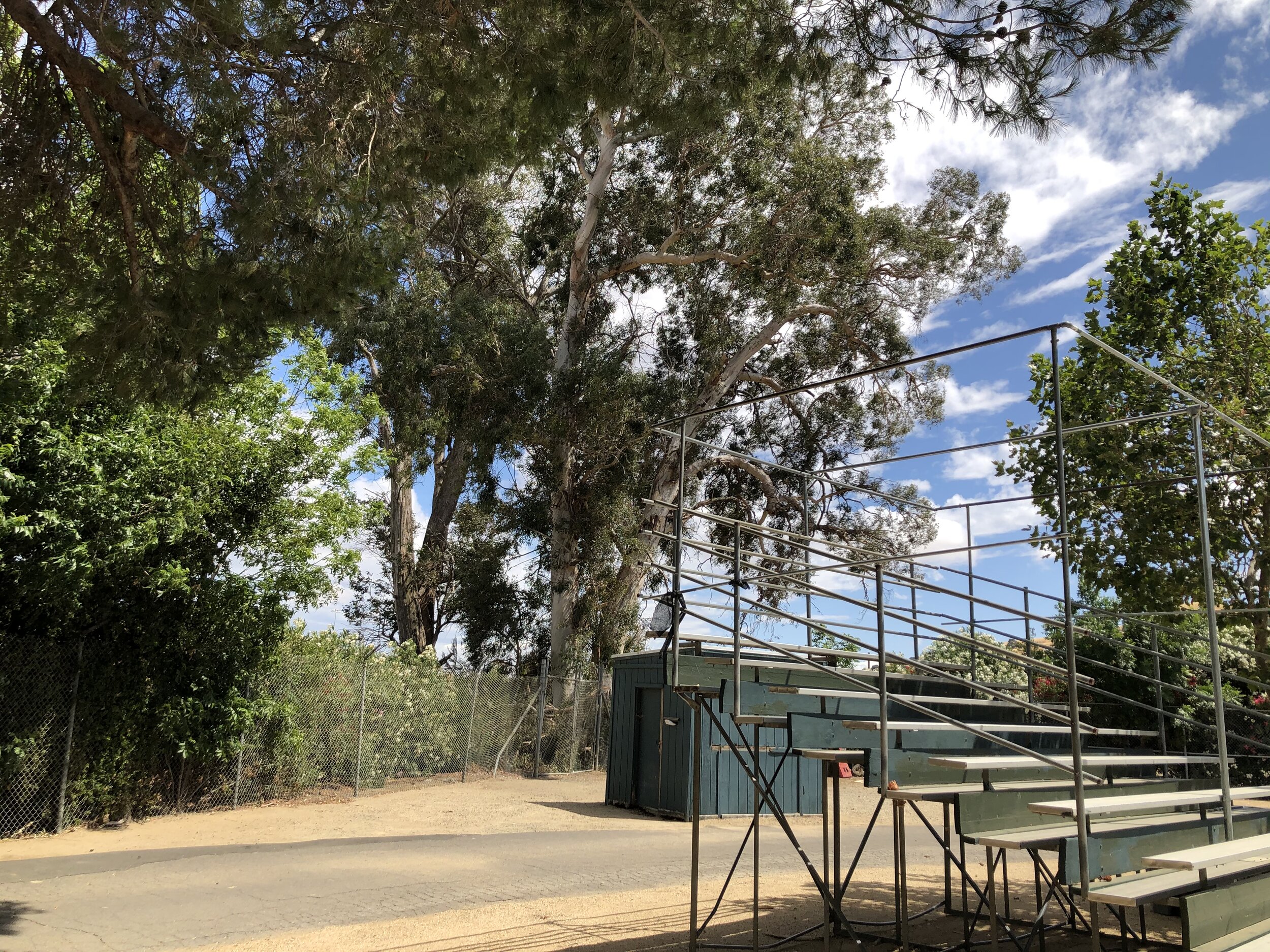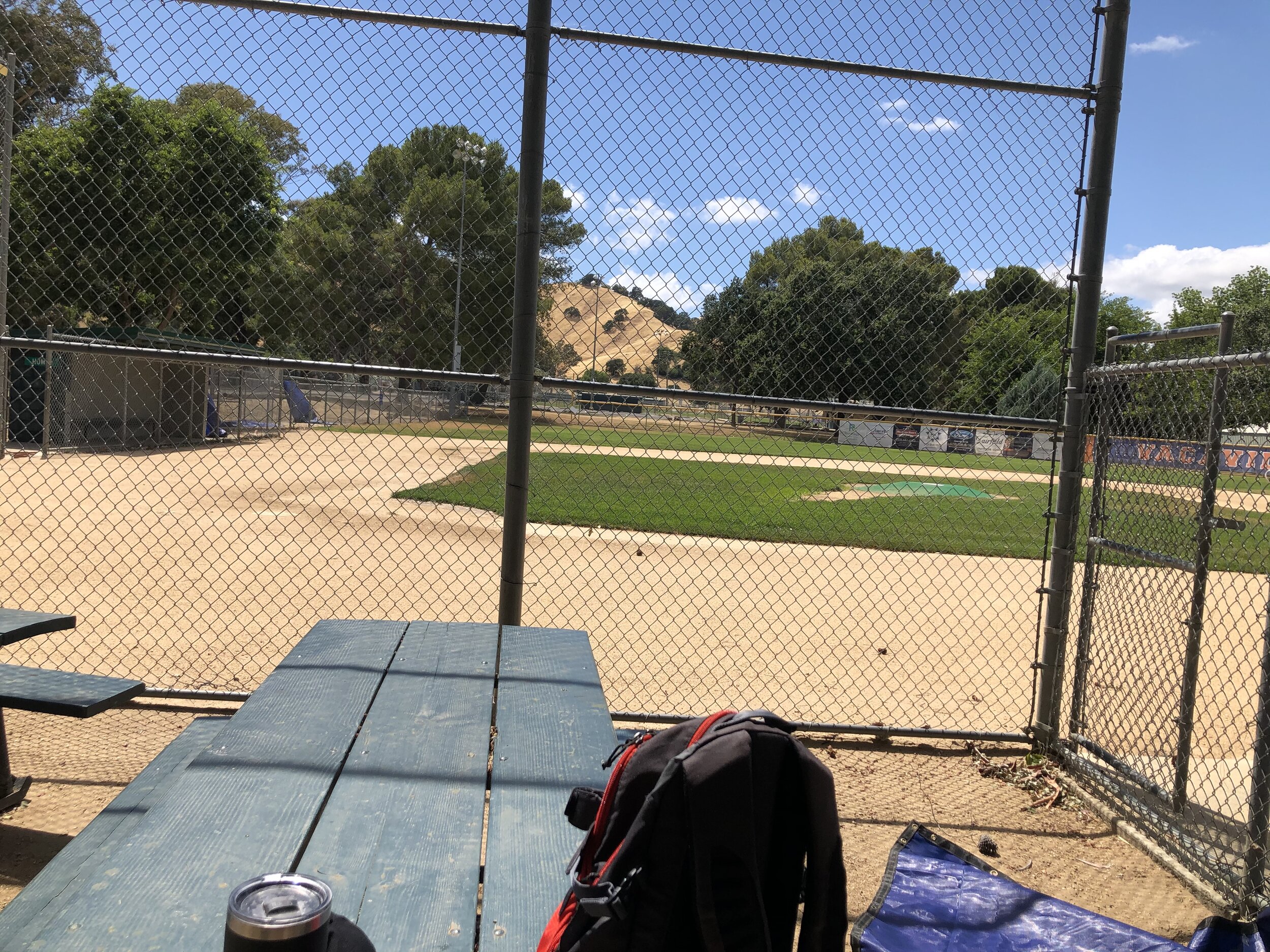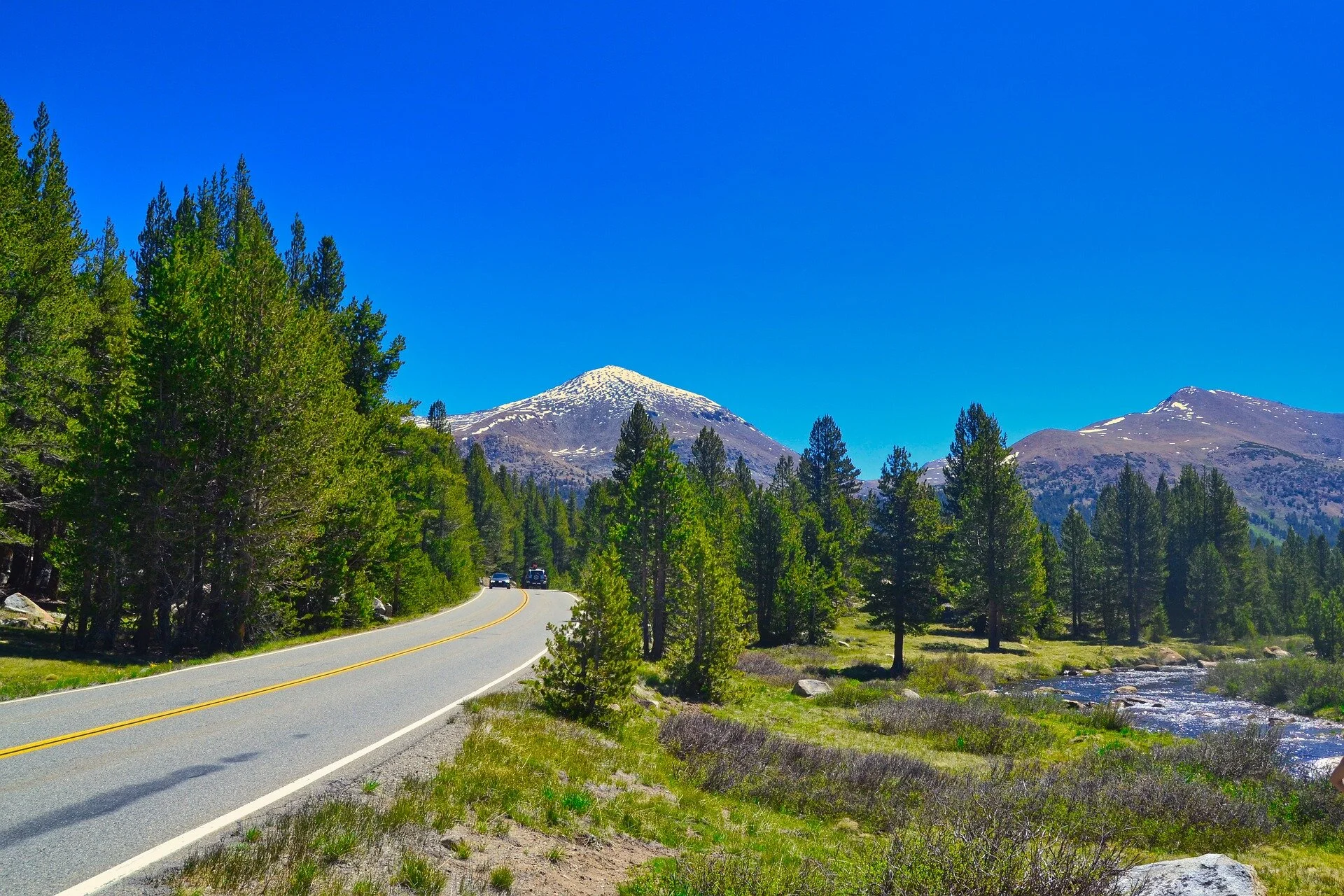Empty Baseball Fields and the Roman Colosseum: Testaments to Their Former Glory and the Decline of Western Culture
My good friend Marc Beaumont recently sent me a couple of photos he took while going for a walk around our hometown, Vacaville, California. Marc was lamenting the emptiness he was seeing all around him in the wake of the ongoing coronavirus pandemic, as many businesses are still closed or have imposed restrictions on their employees and customers, and as many people are choosing to stay at home and to avoid public places in general.
One of the photos Marc sent me was of empty bleachers at a local baseball field in Vacaville. It was such a lonely picture: empty bleachers at a baseball field in the middle of summer, when children should be playing baseball and parents should be cheering them on.
When I saw the photo of the empty bleachers, I was instantly reminded of the Colosseum in Rome, one of the great architectural achievements of the Romans, regardless of how we feel culturally today about the gladiator fights once held there. Once a proud testament of Roman culture, the Colosseum is now a sad-looking, dilapidated relic of its former self, a perfect example of what centuries of neglect can do to humanity’s greatest cultural achievements.
Thinking about the connection between the empty baseball bleachers, not just in Vacaville and in every small town in the United States, but in Major League ballparks all across the country as well, I couldn’t help but think that they are harbingers of the decline of Western civilization that we are seeing not just in sports but in every cultural, social, and political sense. These empty bleachers and stadiums have not yet decayed like the Roman Colosseum has, and one can practically smell the lingering scent of the grass and the uneaten hot dogs from the previous season.
Will these empty bleachers, baseball fields, and stadiums continue to decay and become symbols of our culture’s former glory as well? Will we close our eyes and remember what a summer day at the ballpark used to be, letting the sights and sounds of what life everyday life in America once was permeate our being with nostalgia for what we’ve lost, not just over the last few months since the onset of the coronavirus pandemic, but likely permanently, for it seems unlikely a summer day at the local baseball field or any Major League ballpark will ever be the same again, to say nothing of a trip to the grocery store or a summer vacation.
All around us, will we soon see the vestiges of our culture, decaying symbols of American life, like an old swing set with rusted chains and decaying vinyl seats swaying in the wind, no longer loved or used by the children who once played upon them, the faintest sounds of childhood laughter still hanging in the air for those who quiet themselves to listen? Will the empty parking lots, empty storefronts, and the empty ballparks alike testify to the values we once held as Americans, just as the emptiness of the Roman Colosseum now testifies to the values and the lives of the everyday Roman people who once lined up to take their seats in the now-decaying stadium, the scent of gladiator blood still present in the ground, at least if you close your eyes and imagine life in Ancient Rome while you take a whiff.
Undoubtedly the Major League ballparks will be full once again, even if we continue to see the occasional coronavirus mask for the next few years until the panic fully subsides. And children will once again play ball in local ballparks, with their parents once again filling the bleachers as they have done for ages. (Did parents of Roman gladiators come see their children fight at the Colosseum? It’s unlikely. But what an interesting thought that is nonetheless!)
It’s unlikely that the bleachers and ballparks around the country will live to see the decay of the Roman Colosseum. But I still worry that we are in a period of cultural decline, and it does make me wonder exactly which vestiges of our culture will still be visible in a couple thousand years. Will it be an ocean full of plastic or a so-called “plasticine era,” as future archeology might call our time? Will it be the pillars of defunct local libraries testifying to the cultural values of literacy and equality that motivated us to build them in the first place? Will it be the long-since paved over foundations of our schools and universities as they shut their doors in favor online education, a transition being sped along by the coronavirus pandemic? Or will it be artifacts from our restaurants and shopping malls, already either decayed or ghost towns, even before the stay-at-home orders that will likely prove to have been the final nail in the coffin of the retail apocalypse?
Will future remnants of today’s empty shopping malls likewise testify to the glory of our Western culture, just as the Roman Colosseum testifies to the glory of Ancient Roman culture?
It isn’t all doom and gloom, however. New cultures inevitably emerge from the ashes of old ones. And humans will rebuild their world from the remnants of ours. New stadiums will be built for all the future sporting events yet to come, just as the great ballparks of the 20th and 21st centuries were built even while the Roman Colosseum continued to decay half a world away with nary a thought about the gladiators of old from their cultural descendants, the baseball players for whom we cheer just as mightily. The empty bleachers of today may indeed continue to rust and may eventually be torn down, and the glorious games once played on the baseball fields they overlook may fade into memory and ultimately be lost to time, just as the gladiator contests of Ancient Rome are now the stuff of legend. But new stadiums and ball fields will be built and rebuilt for ages to come, a veritable certainty which no pandemic can prevent. Humans long to be together, to revel in the glory of sport and to cheer for our heroes and for our loved ones alike, just as the Ancient Romans did and as future humans will undoubtably continue to do until the end of humanity itself.
For Further Reading:
The Roman Colosseum: The History of the World’s Most Famous Arena by Charles River Editors
Ballparks: A Journey Through the Fields of the Past, Present, and Future by Eric Enders
Vacaville (Then & Now) by Carole Noske, Brian Irwin, and the Vacaville Heritage Council
Retail Apocalypse: The Death of Malls, Retailers & Jobs by Stanley Philipose














